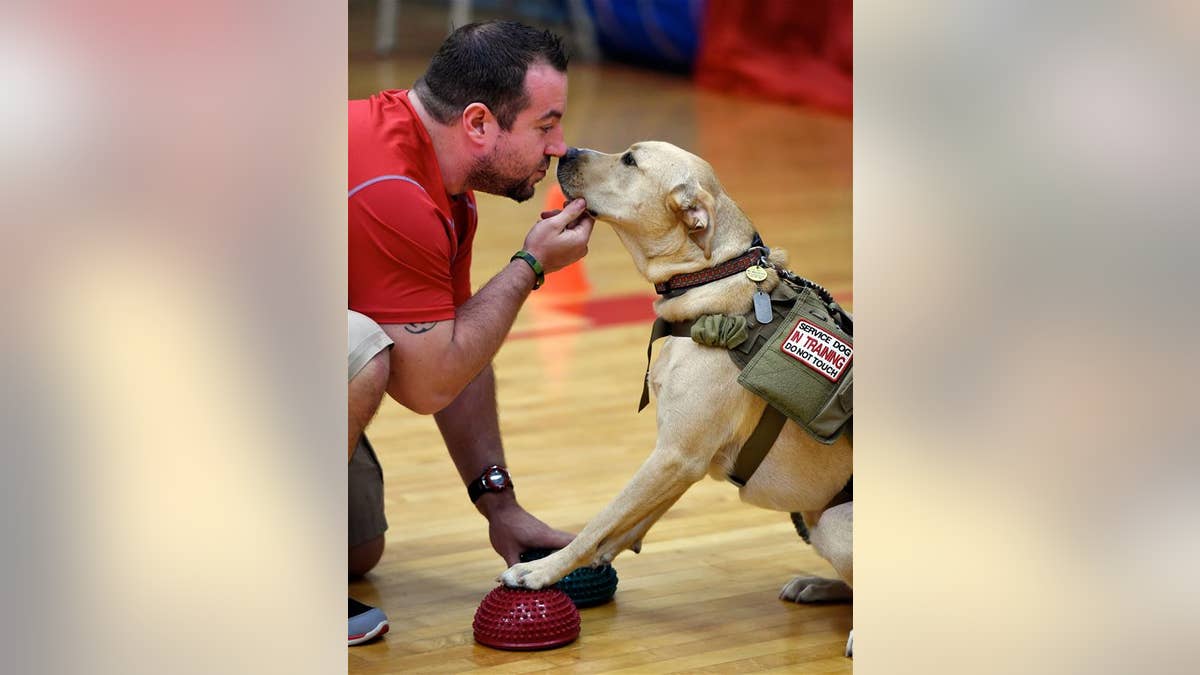
An owner gets nose to nose with his service dog. (Mike Lawrence/Courier & Press via AP)
A dog's nose may be wetter than yours, but don't count yourself out when it comes to tracking a scent just as well as your canine companion.
A new mega-study in the journal Science refutes the longtime belief that dogs' noses are vastly superior to our own, reporting that people's olfactory skills rank right up there with other mammals, including rodents and, yes, dogs.
Led by neuroscientist John McGann, researchers out of Rutgers University-New Brunswick pored over upward of 1,000 scientific papers on humans' sense of smell and found that genuflection to animals' sniffing skills stretches back to the 1870s, when anatomist Paul Broca concluded the human olfactory bulb was tiny and not as powerful as those in other mammals, the CBC reports.
Turns out, that's not the case. McGann explains in a release that the animals-can-sniff-better myth has persisted due to the number of olfactory receptors humans have (about 400), while mice and rats boast around 1,000.
But people typically have more glomeruli, or smell decoders, which means we may be able to recognize up to 1 trillion odors—similar to what mice and dogs can pick up.
McGann says smelling comparisons between pups and people is also muddled by the fact that each boasts a different sniffing process, per Live Science: While humans rely on odors hitching a ride on those receptors, which then send messages to the olfactory bulb, then to the brain, dogs have a "pump" that's better able to pick up chemicals in liquid form.
Plus, dogs and humans are just primed to parse out different odors: Dogs may be better at smelling urine on a hydrant, while humans are better able to figure out there's a glass of fine wine nearby.
(Rats have been used to sniff out crime.)
This article originally appeared on Newser: Sniff Myth, Busted: Humans Can Smell as Well as Dogs








































